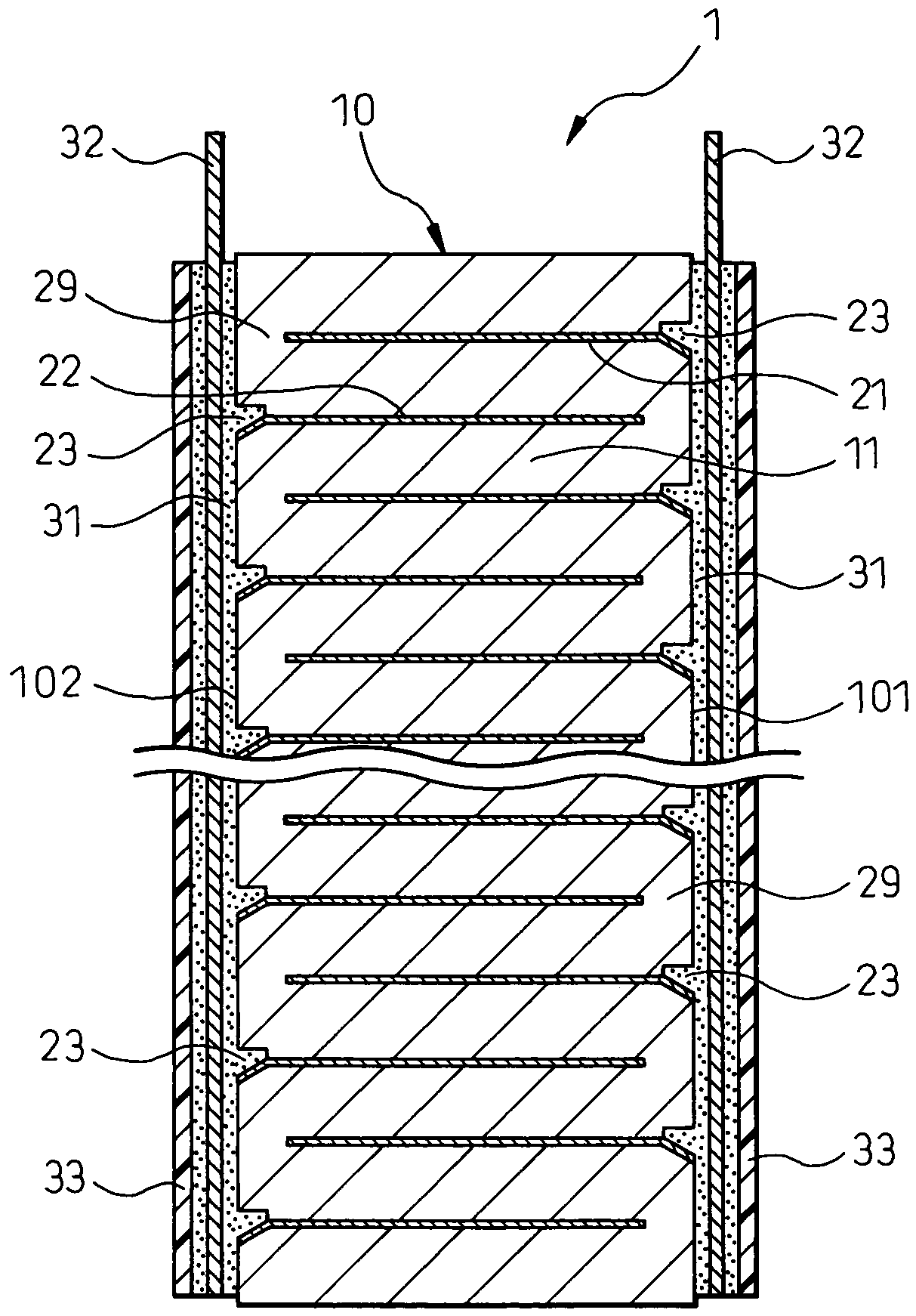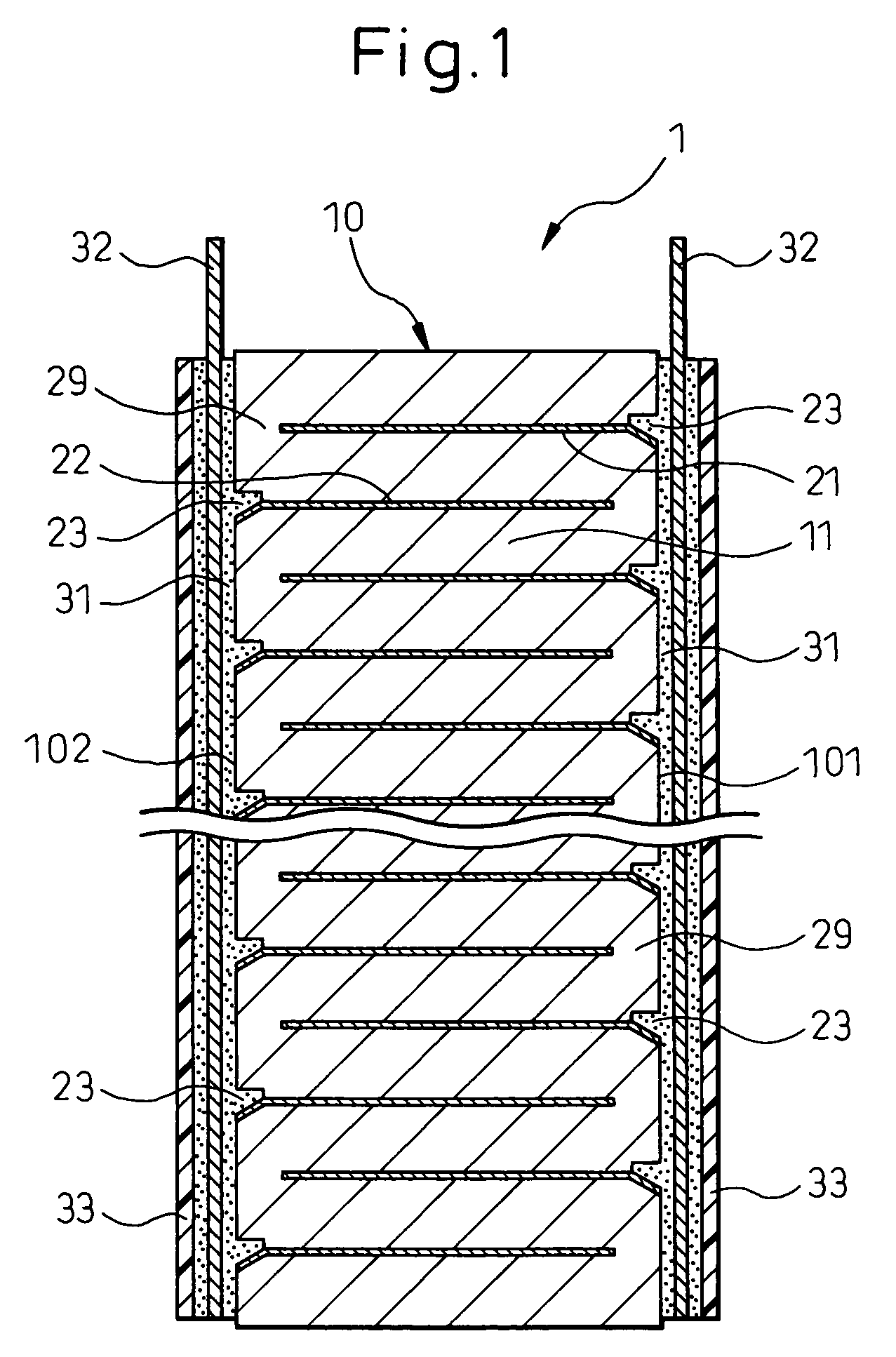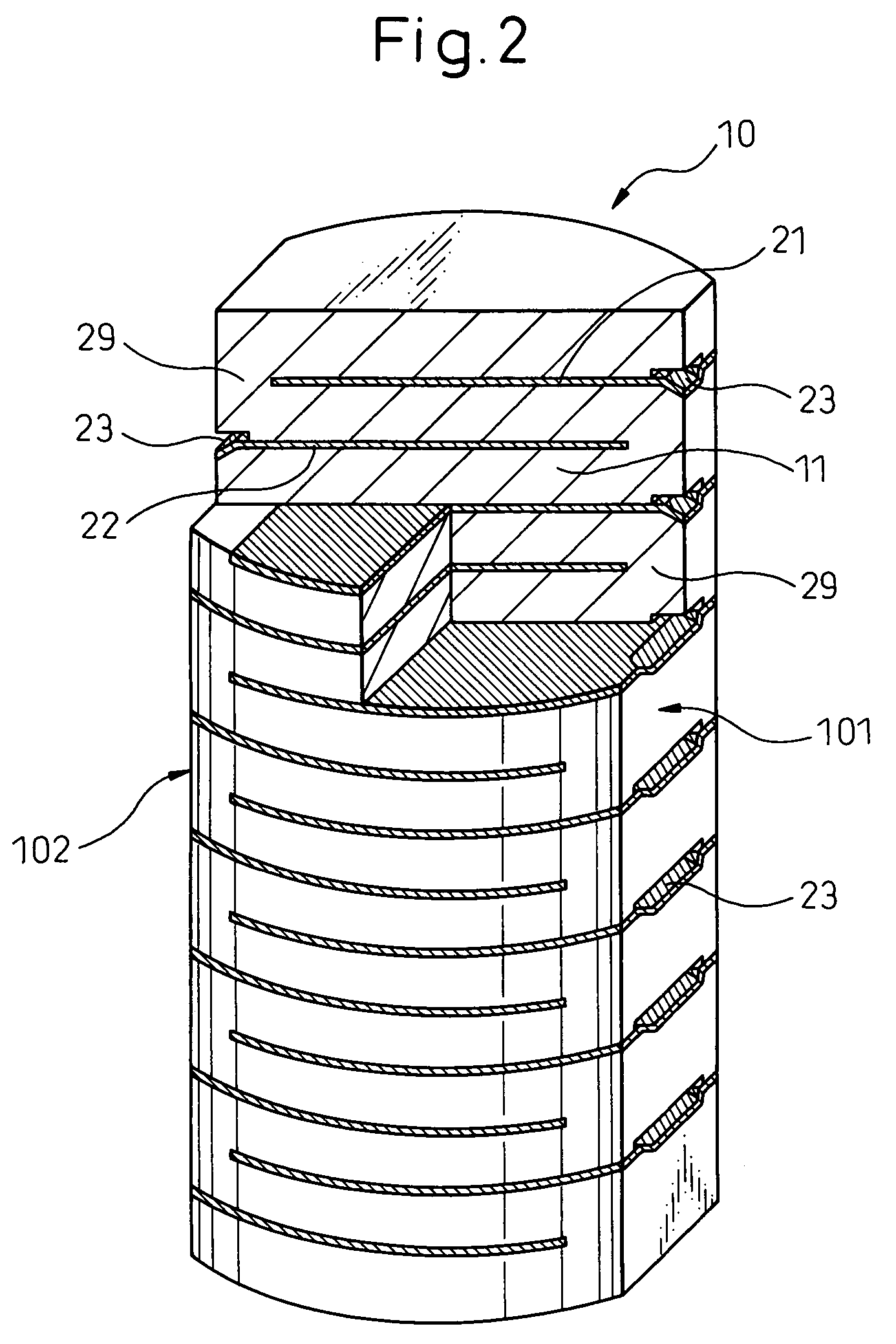Stacked piezoelectric element and method of fabrication thereof
a piezoelectric element and stacking technology, applied in piezoelectric/electrostrictive/magnetostrictive devices, piezoelectric/electrostriction/magnetostriction machines, electrical devices, etc., can solve the problems of conduction failure, high possibility of above failure, and delaminate conductive adhesives from the side faces of ceramic stacks, so as to improve adhesion and enhance the anchoring effect. , the effect of not easily delamina
- Summary
- Abstract
- Description
- Claims
- Application Information
AI Technical Summary
Benefits of technology
Problems solved by technology
Method used
Image
Examples
example
Example 1
[0069]A stacked piezoelectric element and a method of fabrication thereof according to an example of the present invention will be described with reference to FIGS. 1 to 14.
[0070]As shown in FIGS. 1 and 2, the stacked piezoelectric element 1 according to this embodiment comprises: a ceramic stack 10 constructed by alternately stacking piezoelectric layers 11 made of a piezoelectric material and internal electrode layers 21, 22 having electrical conductivity; and external electrodes 32 bonded to the side faces 101 and 102 of the ceramic stack 10 via an electrically conductive adhesive 31.
[0071]The side faces 101 and 102 of the ceramic stack 10 are provided with electrode recesses 23 each formed by indenting a portion of the edge of each of the internal electrode layers 21, 22 in the stacking direction thereof thereby forming a gap between it and the overlying piezoelectric layer 11, and the conductive adhesive 31 is applied so as to enter the electrode recesses 23 from the s...
example 2
[0125]This example differs from the stacked piezoelectric element 1 of Example 1 in that slits 12 are formed in the outer circumferential surface of the ceramic stack 10, as shown in FIG. 18.
[0126]In the fabrication method of the stacked piezoelectric element 1 of this example, dissipating slit layers 120 which are subsequently caused to dissipate in the calcining step are printed on the green sheet 110 in the printing step and, adjacent to the dissipating slit layers 120, a spacer layer 111 that is to be left after calcining is printed to the same thickness as the dissipating slit layers 120.
[0127]Then, in the intermediate stack forming step, electrode-containing pieces 51, each comprising the electrode material 200 applied on the green sheet 110 and the recessed portion 230 formed thereon, and dissipating-slit-layer-containing pieces 52, each comprising the dissipating slit layers 120 and the spacer layers 111 formed on the green sheet 110, are fabricated and stacked together.
[012...
example 3
[0140]This example is based on the ceramic stack 10 of Example 1, but the shapes and positions of the internal electrode layers 21, 22 and the slits 12 are changed in various ways. These changes will be described in detail with reference to FIGS. 18 to 22 which include drawings showing the ceramic stack 10 of the second example.
[0141]The shape and position of each of the internal electrode layers 21, 22 can be changed in the desired manner by changing the printing positions of the electrode material 200 and the spacer layer 111 to be printed within the punching area 41 on the green sheet 110 in the printing step.
[0142]Further, the shape and position of the slits 12 can be changed in the desired manner by changing the printing positions of the dissipating slit layers 120 and the spacer layer 111 to be printed within the punching area 41 on the green sheet 110 in the printing step or by changing the order in which the electrode-containing pieces 51 and the dissipating-slit-layer-conta...
PUM
| Property | Measurement | Unit |
|---|---|---|
| thickness | aaaaa | aaaaa |
| temperature | aaaaa | aaaaa |
| temperature | aaaaa | aaaaa |
Abstract
Description
Claims
Application Information
 Login to View More
Login to View More - R&D
- Intellectual Property
- Life Sciences
- Materials
- Tech Scout
- Unparalleled Data Quality
- Higher Quality Content
- 60% Fewer Hallucinations
Browse by: Latest US Patents, China's latest patents, Technical Efficacy Thesaurus, Application Domain, Technology Topic, Popular Technical Reports.
© 2025 PatSnap. All rights reserved.Legal|Privacy policy|Modern Slavery Act Transparency Statement|Sitemap|About US| Contact US: help@patsnap.com



